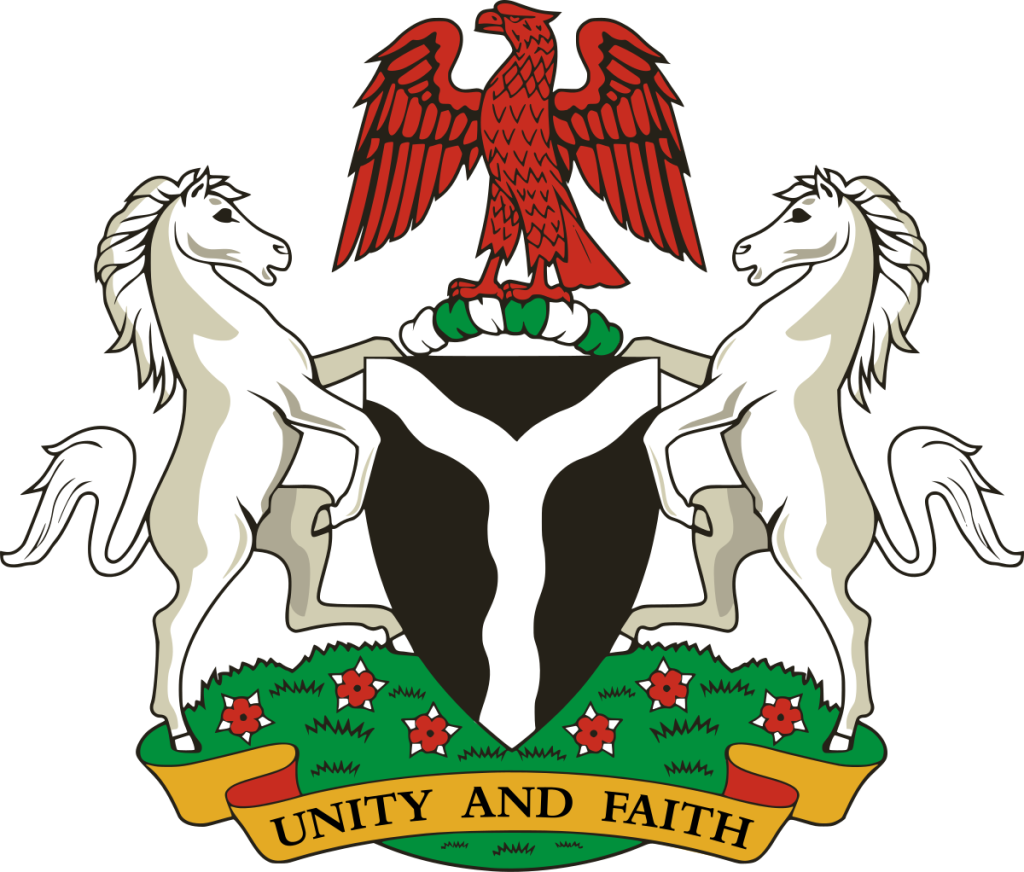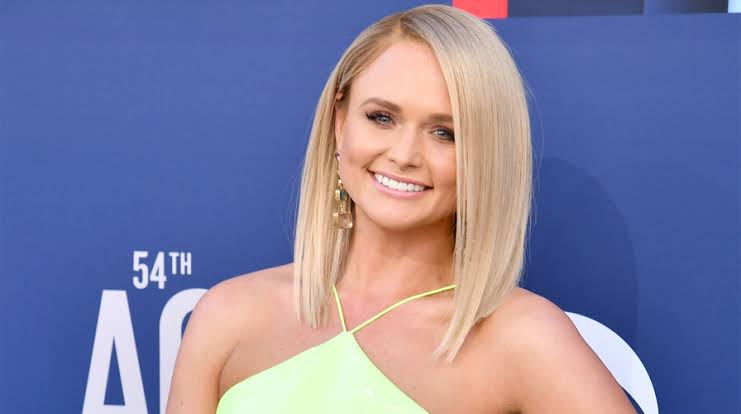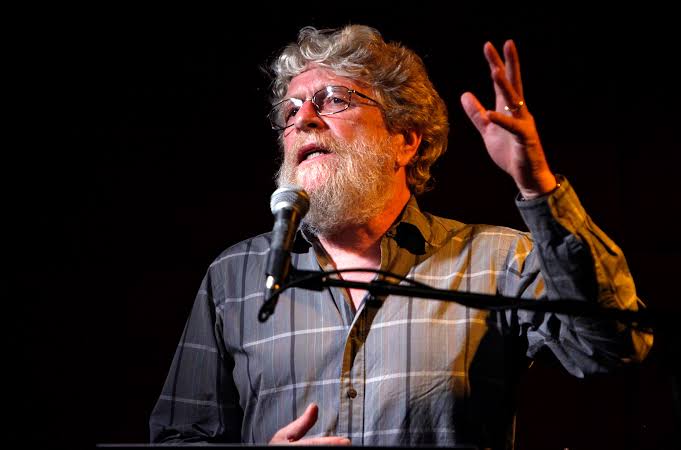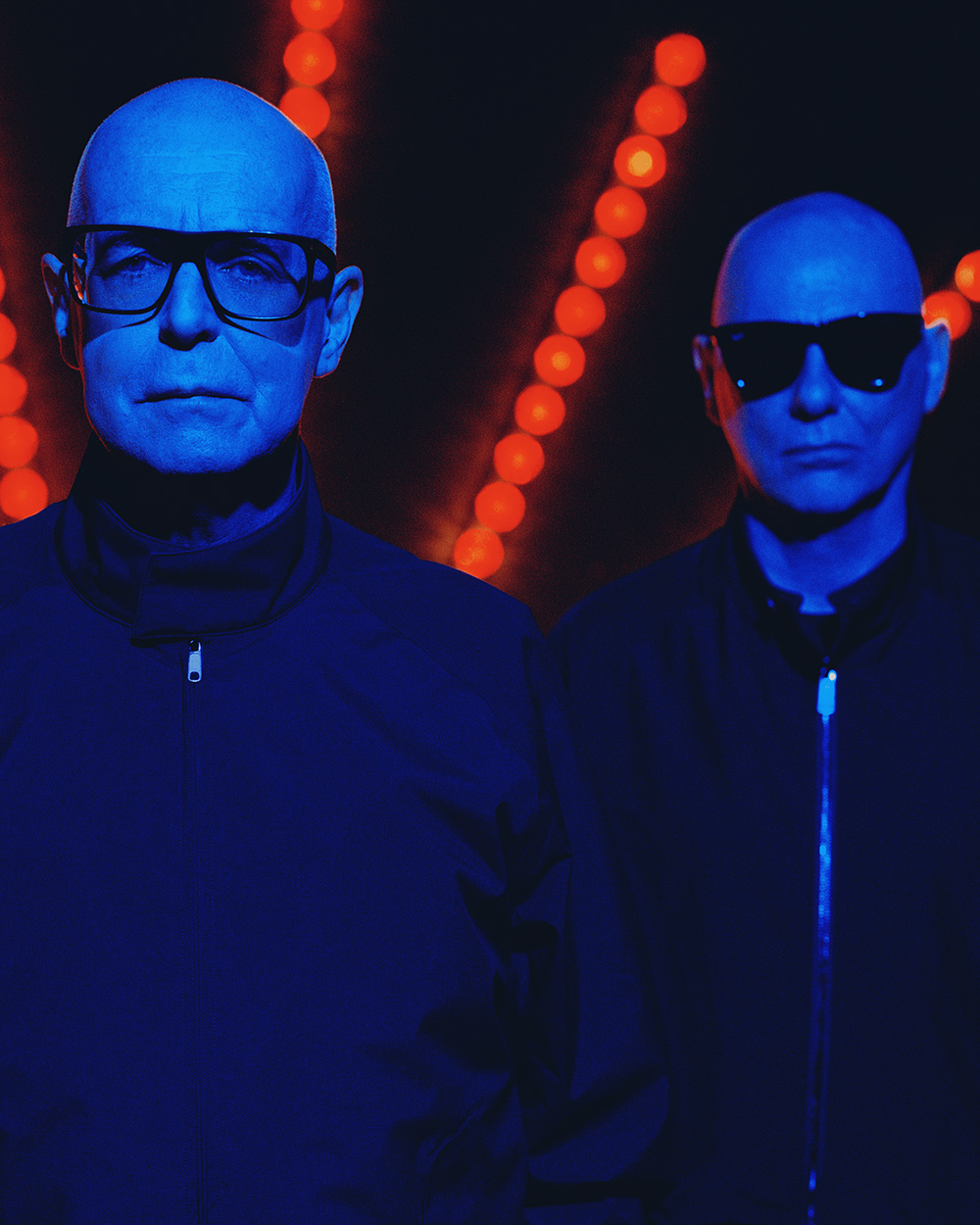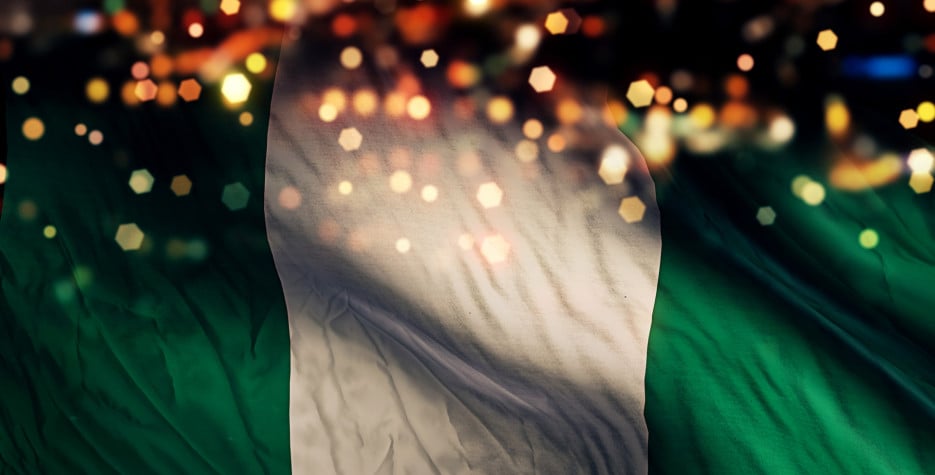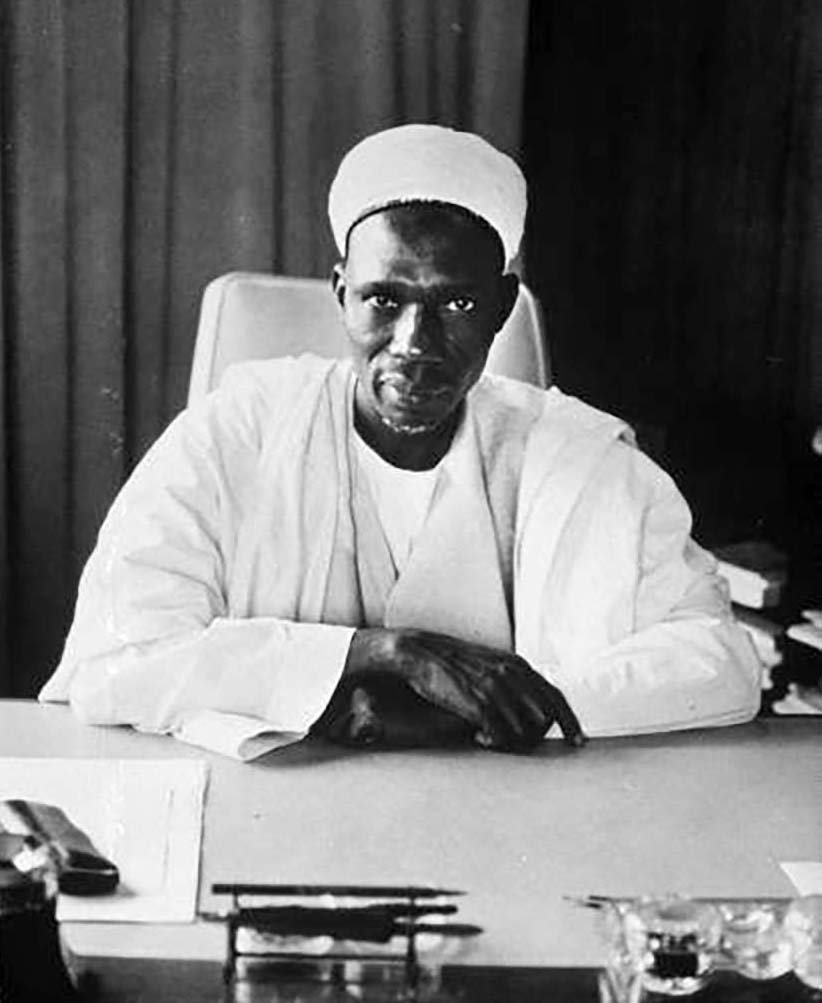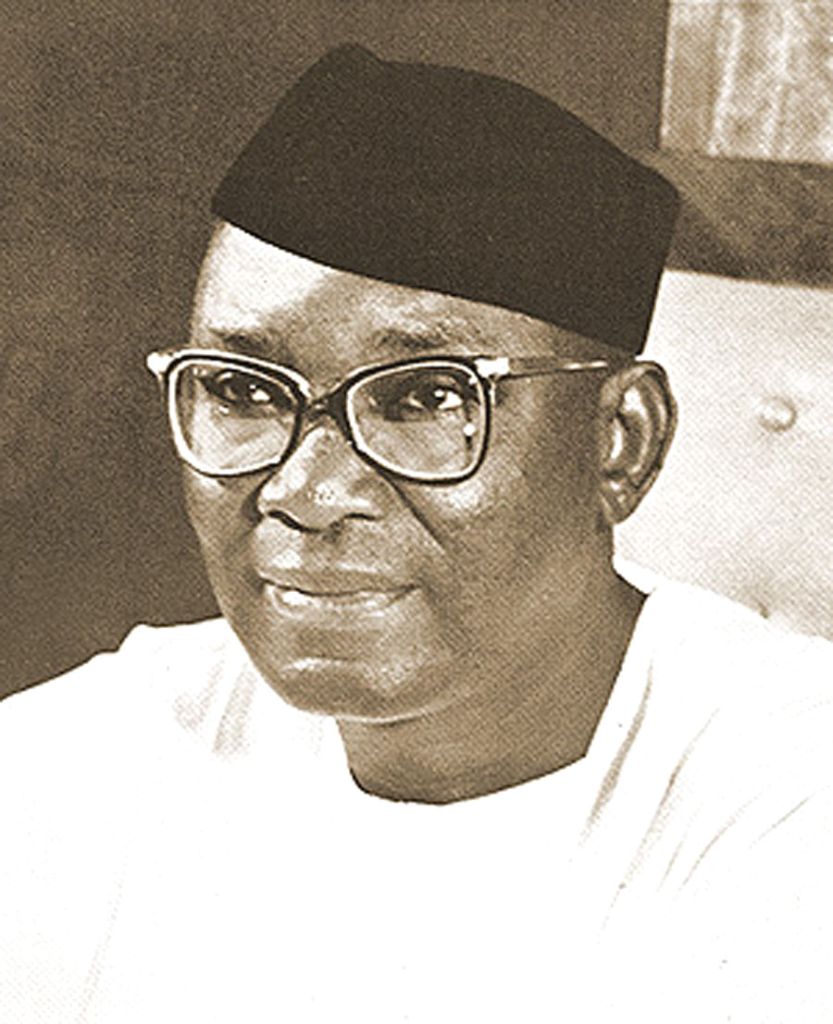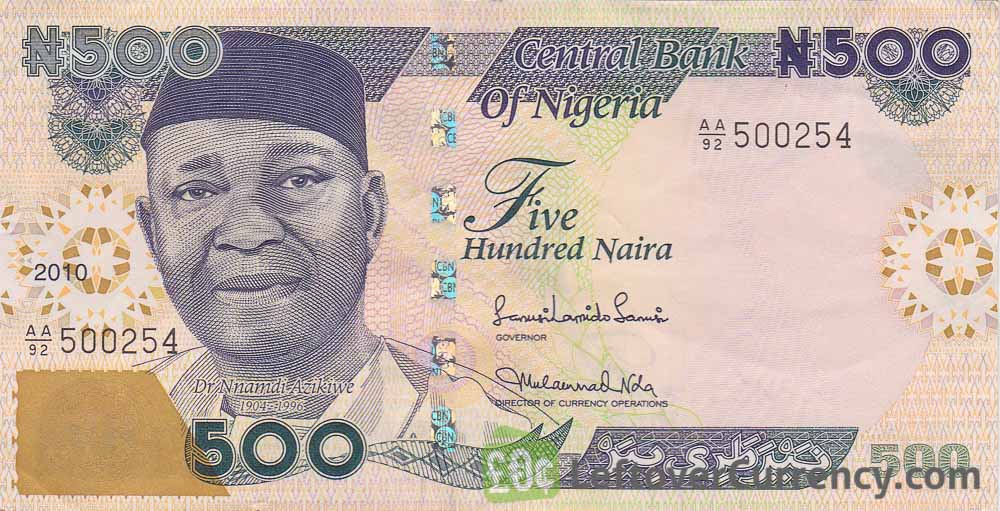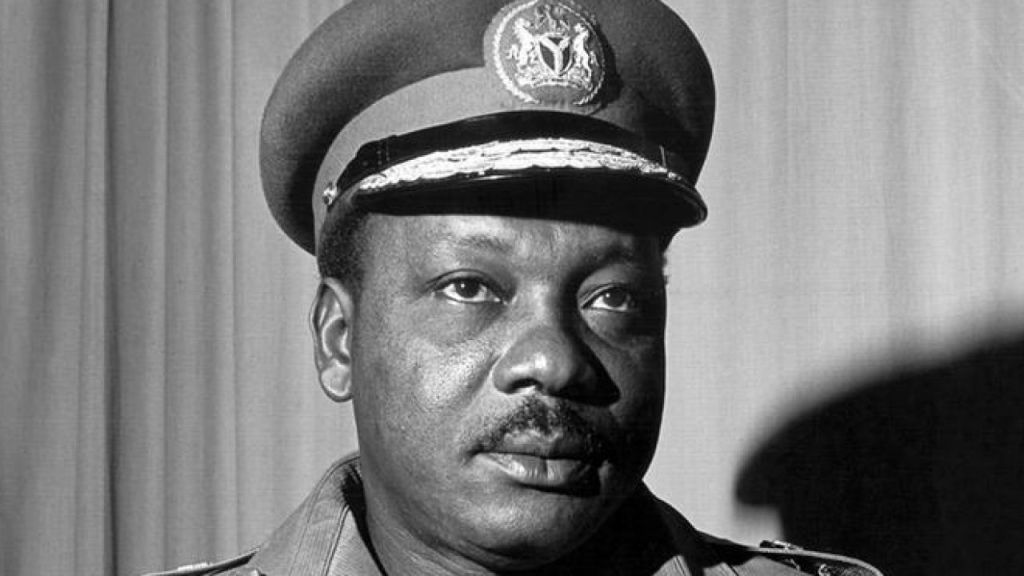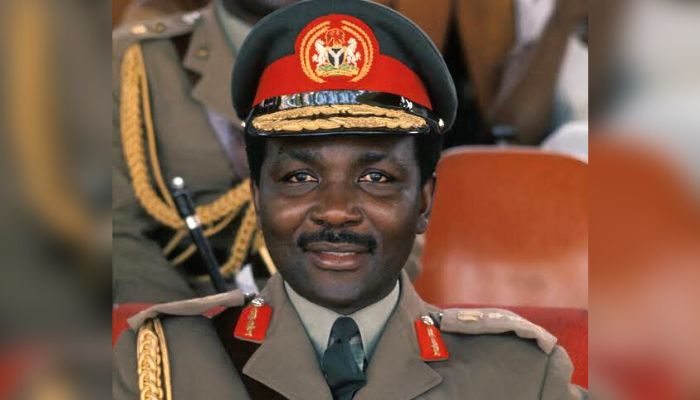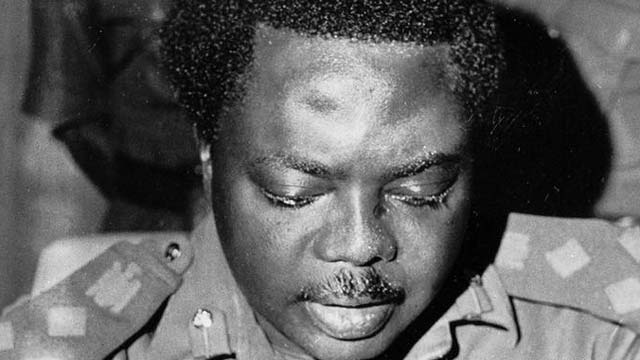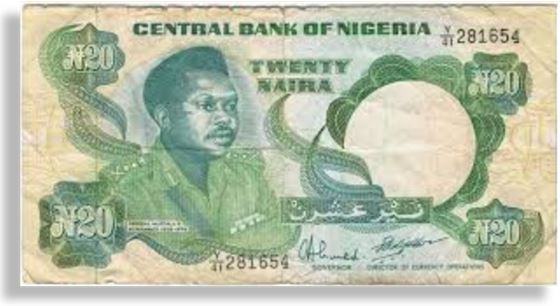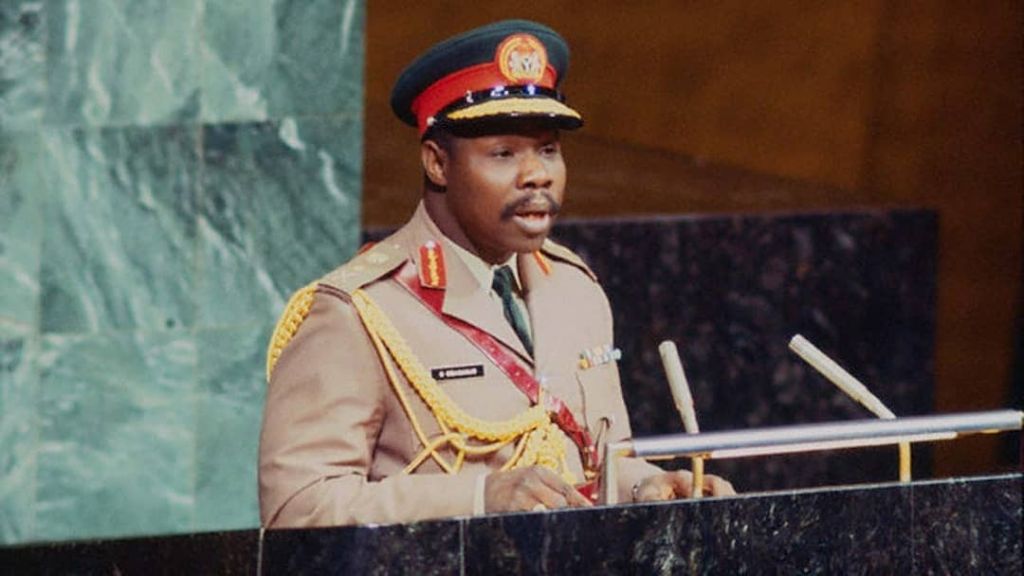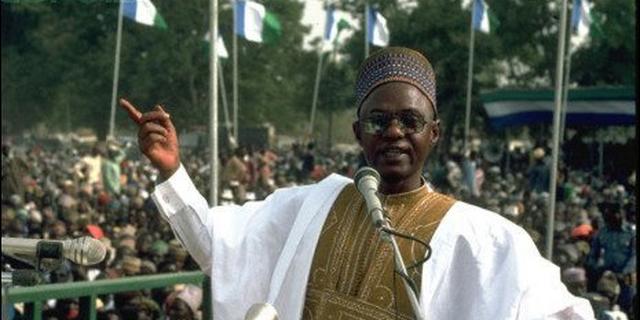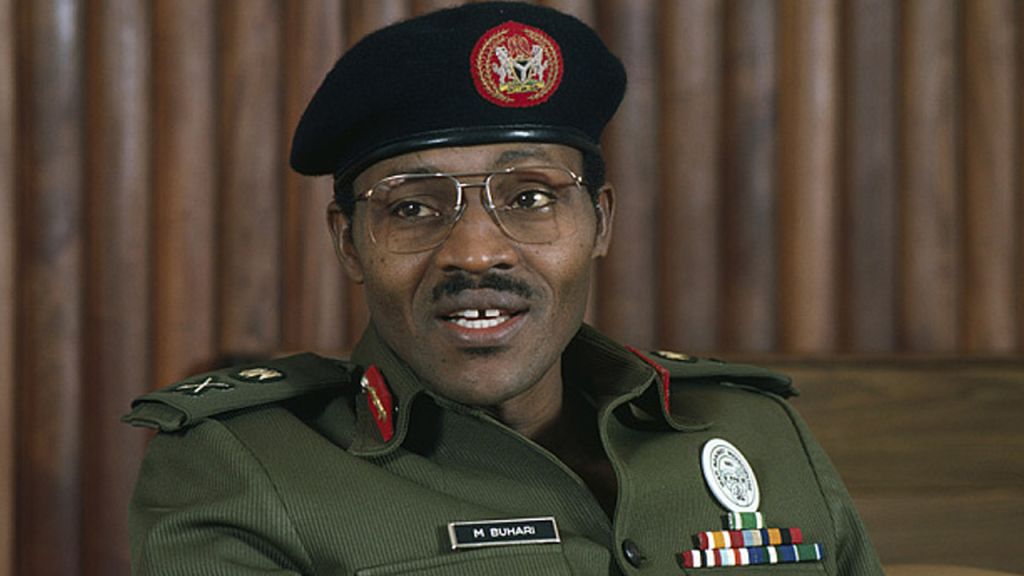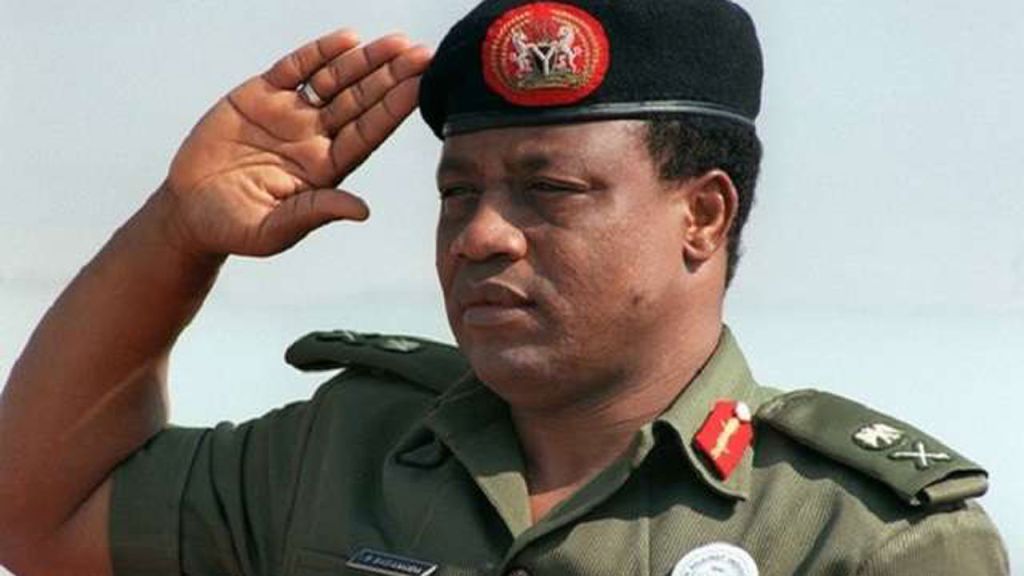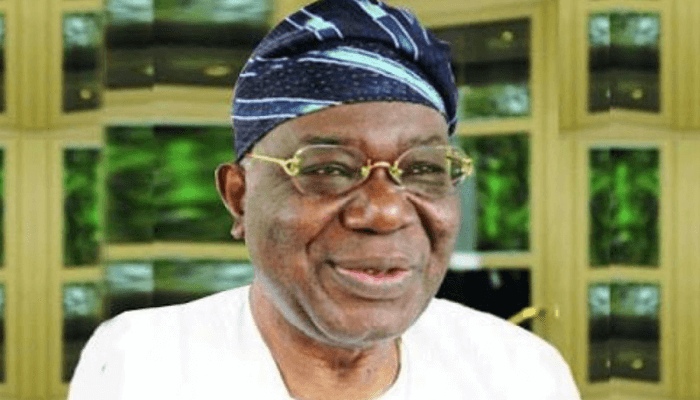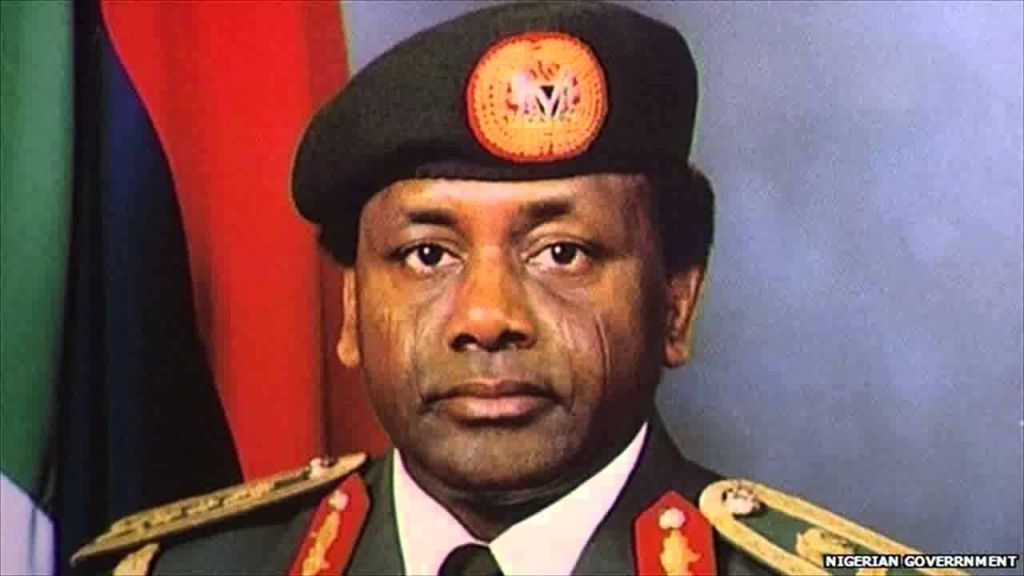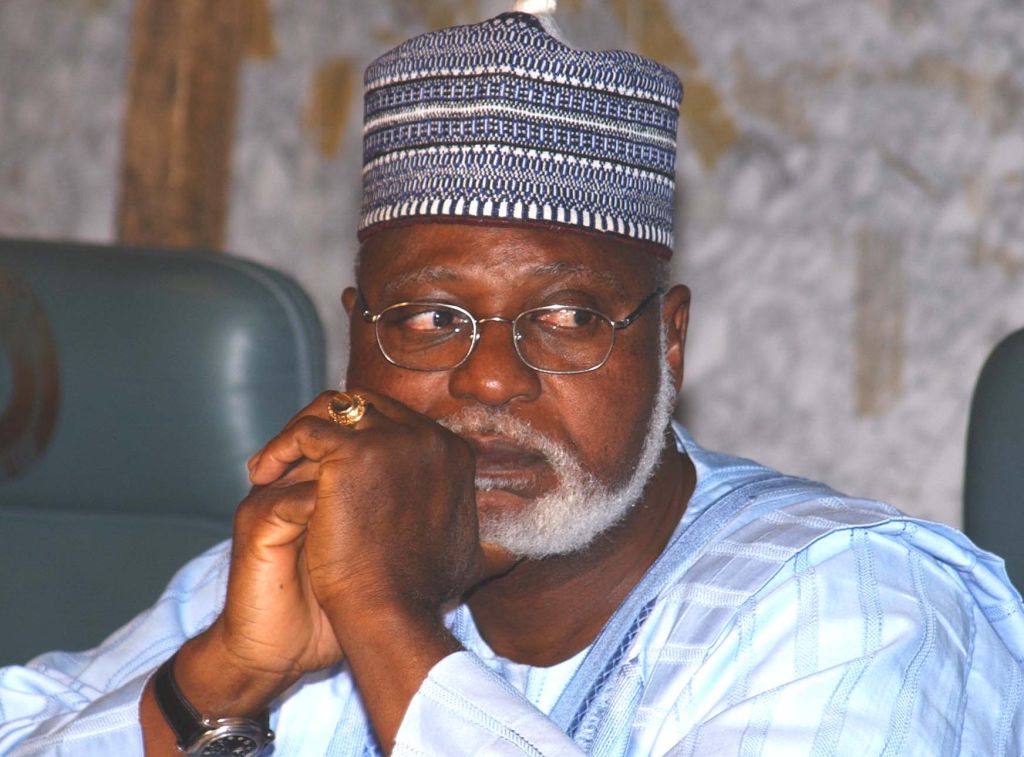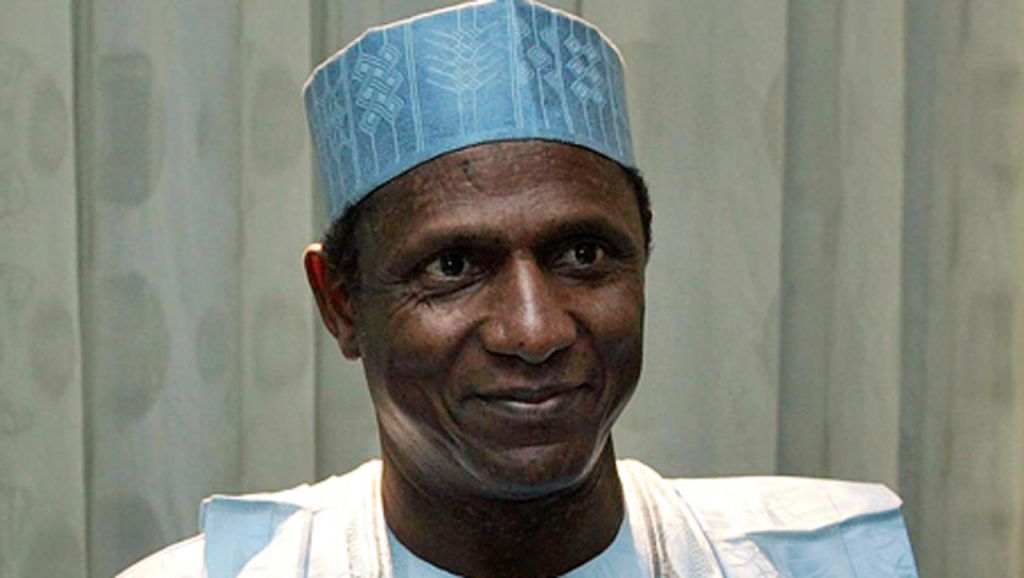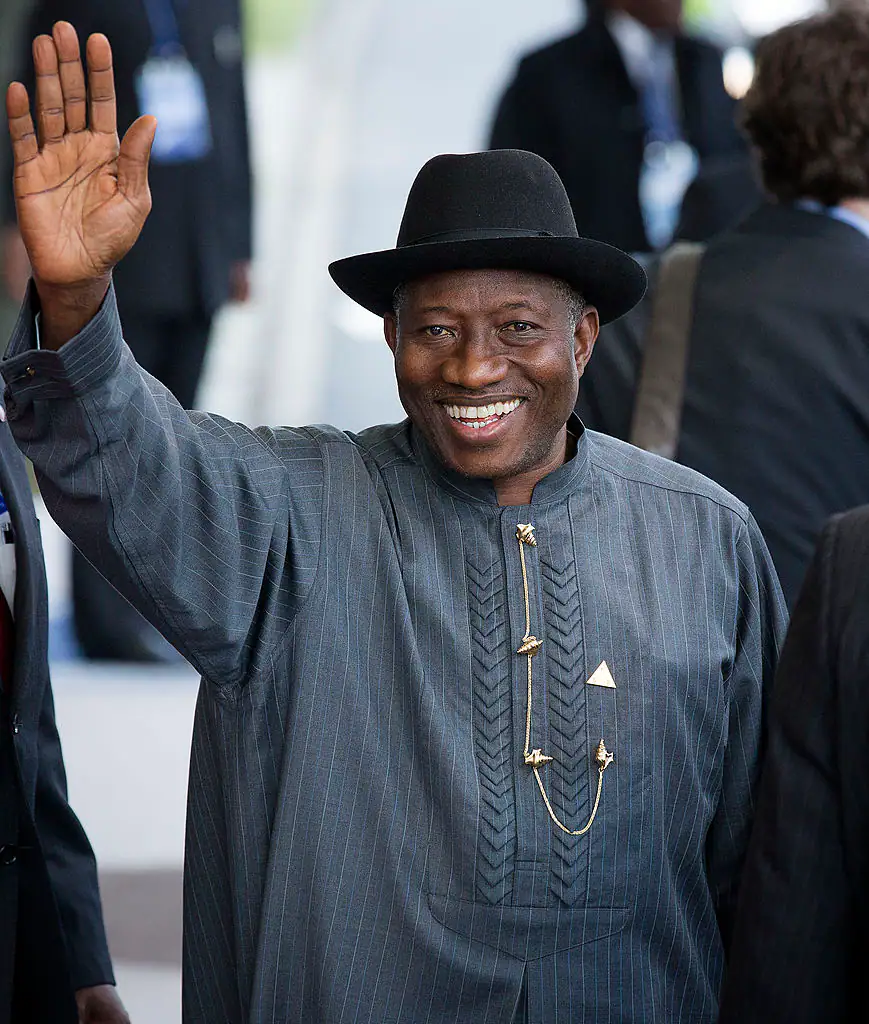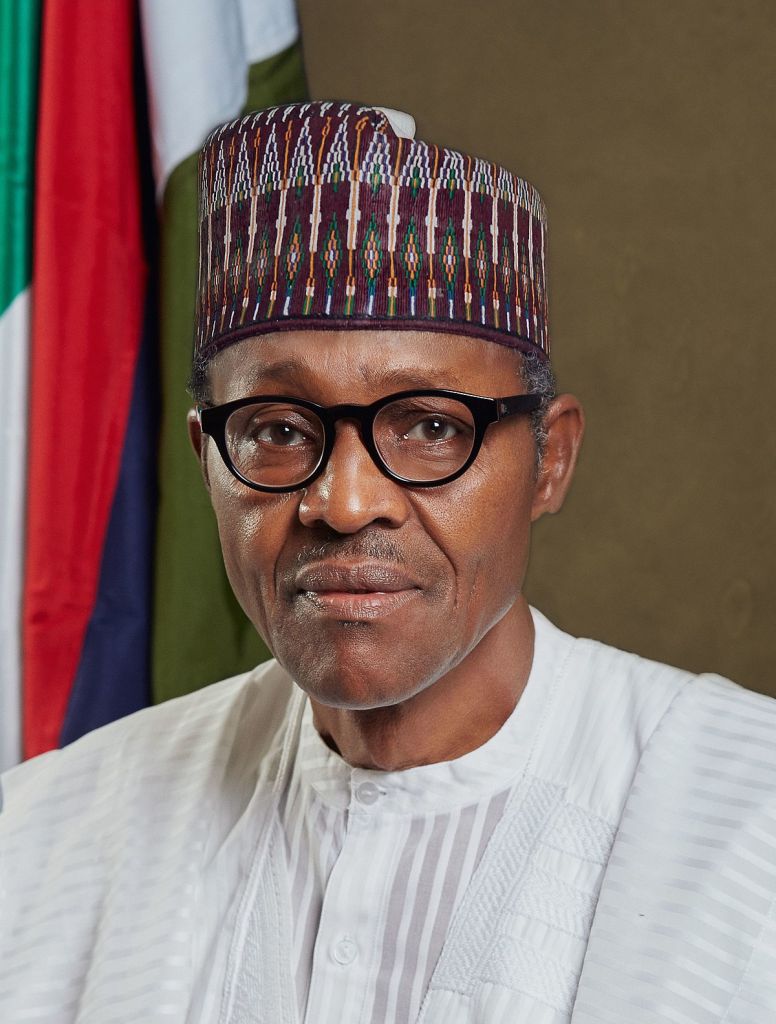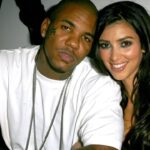Previous Nigerian Presidents / Head Of States
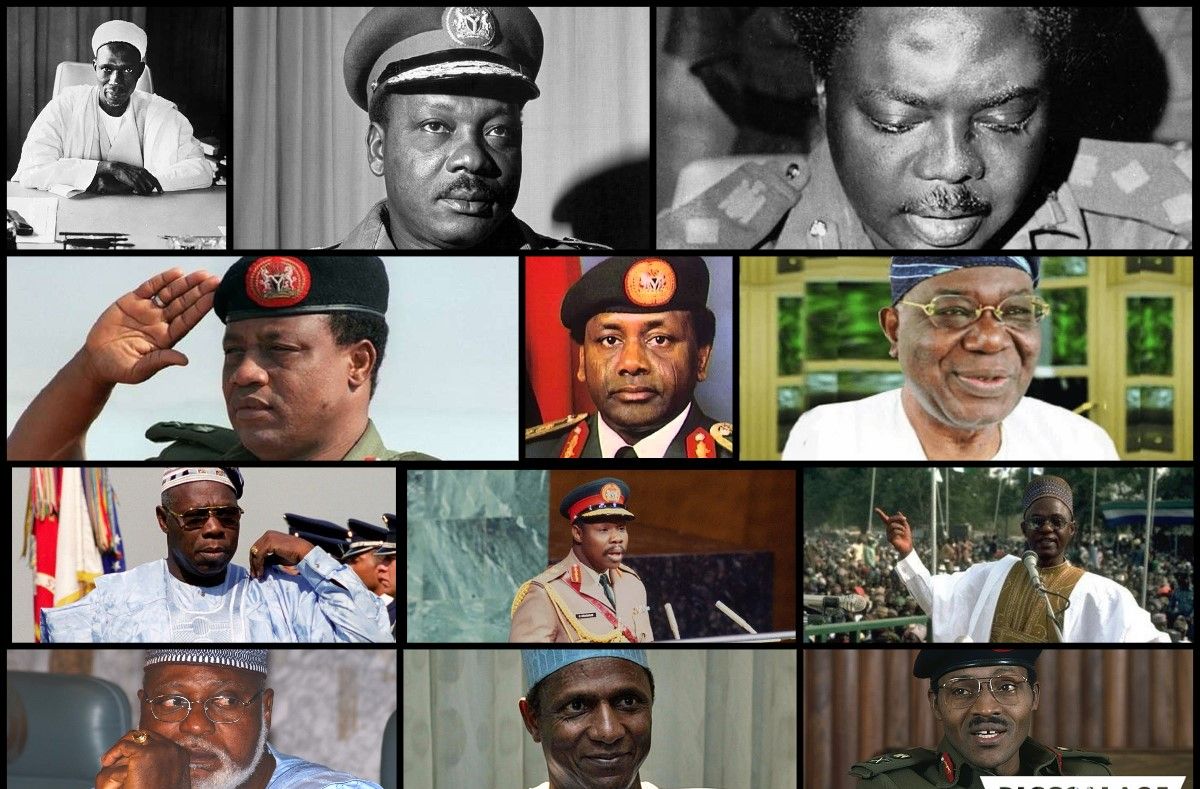
- Prime Minister Abubakar Tafawa Balewa (1960-1963)
- President Nnamdi Azikiwe (1963-1966)
- Major-General Johnson Aguiyi-Ironsi (1966)
- General Yakubu Gowon (1966-1975)
- General Murtala Rufai Ramat Mohammed (1975 to 1976)
- Major General Olusegun Obasanjo (1976-1979)
- Alhaji Shehu Shagari ( 1979-1983)
- Major General Muhammadu Buhari (1983 to 1985)
- General Ibrahim Babangida (1985-1993)
- Chief Ernest Adegunle Oladeinde Shonekan (1993-1993)
- General Sani Abacha (1993-1998)
- General Abdulsalami Abubakar (1998-1999)
- Chief Olusegun Mathew Okikiola Aremu Obasanjo (1999-2007)
- President Umaru Musa Yar’Adua (2007-2010)
- President Goodluck Ebele Azikiwe Jonathan (2010-2015)
- President Muhammadu Buhari (2015-2023)
- Bola Ahmed Tinubu (2023 – )
Nigeria is a Federal republic that practices a Democratic system of government and is led by a President. Nigeria’s Constitution allows a president only hold office for two terms, and Four years are spent on each. However, this has not always been the case since gaining Independence, as the situation has sometimes changed. Over the years, Nigeria has had several leaders. Therefore, she experienced several power transitions, impacted the country’s development, and shaped it into what it is now.
There were enormous expectations for the emergence of a great country in Nigeria as it prepared to become independent from British colonial authority. Nigeria was hailed as the behemoth of Africa and even a future powerhouse on the international scene.
Following Independence, Nigeria saw a rapid pace of change. On October 1, 1960, five years after Independence, a violent coup placed the military in power. Before Nigeria eventually reverted to democratic governance in 1999, a counter-coup, a civil war that claimed millions of lives, and two unsuccessful efforts to restore civil dispensations followed.
Fourteen individuals, eight with military backgrounds, have led Nigeria under 16 governments since its Independence. Olusegun Obasanjo and Muhammadu Buhari were the only two to lead as military leaders and be elected civilian presidents. This article highlights these past and present leaders and their impact on shaping Nigeria’s Democracy as we see it today.
Prime Minister Abubakar Tafawa Balewa (1960-1963)
He was born into the world as a commoner in the northern region of colonial Nigeria and received teacher training. In Bauchi State, Abubakar Tafawa Balewa was born in December 1912. The title of Prime Minister has only ever been given to one person in Nigerian history, and that person is Balewa. In 1952, Balewa debuted in the Nigerian government, first as the minister of works and then as the minister of transportation.
He was chosen as chief minister in 1957, establishing a coalition administration between the NPC and the National Council for Nigeria and the Cameroons. He took on a significant position during the era of change from colonial to indigenous control in Nigeria. His legacy was created via interethnic cooperation and conflict resolution in other African nations.
After a long colonial rule, the British Crown ultimately ceded control to Nigeria. However, from 1960 until 1963, Sir Abubakar Tafawa, Nigeria’s first prime minister, presided over the country alongside Queen Elizabeth II. At this point, Nigeria became a republic, and he was credited with being at the forefront of the actualization of Independence alongside Obafemi Awolowo and Nnamdi Azikiwe.
President Nnamdi Azikiwe (1963-1966)
On January 16, 1904, Azikiwe was born. Following the country’s transformation into an independent republic, Azikiwe served as Nigeria’s first president. Then Nigeria virtually completely broke its relations with Britain. His great work advancing contemporary Nigerian and African nationalism stems from his native Nnewi in Anambra State.
Alongside Sir Herbert Macaulay, he entered politics after having a successful publishing career. Together, they helped found the National Council of Nigeria and Cameroon (NCNC), which eventually changed its name to the National Council of Nigeria Citizens (NCNC). Zik was chosen to serve in Nigeria’s Legislative Council in 1947. He started as a pioneer in the struggle against Obafemi Awolowo’s administration in 1951.
He was inaugurated as the nation’s first indigenous President in 1960. The 1963 Constitution, Nigeria’s first Constitution as a federal country, was promulgated under his administration. He was in power for three years, from 1963 to 1966, until being overthrown by a military coup. Then, he passed away at the University Of Nigeria Teacher Hospital in Enugu. He was immortalized by being the face of the 500 naira note.
Major-General Johnson Aguiyi-Ironsi (1966)
Major General Johnson Thomas Aguiyi-Ironsi, the first military head of the State of Nigeria, was born in Umuahia, Abia State, in 1924. Later, in 1942, he became a soldier in the Nigerian Army. In 1964, he was promoted to the rank of Major General. On this list of all Nigerian presidents, he is the third. Aguiyi-Ironsi, a prominent military officer from Nigeria, organized the military takeover of Azikiwe’s administration in 1966.
Aguiyi-Ironsi and his soldiers initiated the coup. They assassinated the country’s top figures in the North and West, including the first prime minister, Balewa. After the unrest caused by the 1966 coup that gripped the nation, Ironsi took the helm. Tafawa Balewa was assassinated during this coup. He was the first military President to be assassinated in Nigeria. Young troops who were dissatisfied with the prior coup carried out the coup.
Aguiyi-Ironsi issued several decrees in his brief tenure. One of these, Constitution Suspension and Amendment Decree No. 1, suspended most of the Constitution’s provisions. But he never changed the parts of the Constitution that dealt with freedom of speech, conscience, and fundamental human rights.
General Yakubu Gowon (1966-1975)
General Gowon is the next President listed among all of the Nigerian presidents. In Kanke, Nigeria’s Plateau state, on October 19, 1934, he was born. Gowon is a member of the Ngas (Angas) ethnic group and hails from Lur, a tiny hamlet in Plateau State’s current Kanke Local Government Area. After the coup against Aguiyi-Ironsi, he took control by force and became the youngest head of State.
Gowon began using genocidal methods against the Igbo people in the north when he came into power. As a result, more than 50,000 people were killed. The Nigerian Civil War started in 1967 when tensions boiled over. The destructive consequences of the Nigerian civil war marred his government. In the so-called Biafran War, more than 100,000 military and 1,000,000 civilians were executed.
Gowon ended the Nigerian Civil War (Biafran War) during his presidency. He also formed the National Youth Service Corps, which has 37 orientation camps nationwide and 12 new states. In addition, he spearheaded the creation of Nigeria’s first National Development Plan and authorized its modernization.
General Murtala Rufai Ramat Mohammed (1975 to 1976)
On November 8, 1938, Murtala Muhammad was born. In 1958, Murtala Muhammad enlisted in the Nigerian Army. On the list of all Nigerian presidents, he comes in at five. Like most Nigerian presidents of that time, General Murtala Mohammed seized power by a coup d’état. On July 29, 1975, coup plotters deposed Yakubu Gowon, the country’s head of State, while he was in Kampala for an OAU conference. Murtala Mohammed was then introduced as the new military leader. He presided over Nigeria’s military administration as its head from 1975 to 1976.
In just 200 days, he made a number of rulings. He was then dubbed a National Hero after making what was seen as one of the most important choices of any previous government. He is credited with moving the capital from Lagos, which was overpopulated, to Abuja.
In February 1976, he also created seven other states. His decision to abandon the 1973 census weighted for the north and switch back to the 1963 count for official purposes was one of his first actions. He developed a distinctive, Africa-focused foreign policy. He was immortalized by being the face of the 20 Naira note.
Major General Olusegun Obasanjo (1976-1979)
Olusegun Obasanjo was born on March 5, 1937, in Abeokuta, Nigeria’s Ogun State. His ancestors are from the Ibogun-Olaogun village. On this list of all Nigerian Presidents, he is one of just two leaders that held office twice. Obasanjo backed General Mohammed then but was not interested in the 1975 military takeover.
Obasanjo was then designated as a deputy in Mohammed’s administration and was under assassination watch, but he managed to flee. The capital’s calm, safety, and army authority were all restored by Obasanjo. In addition, a plan was developed to reinstate Nigeria’s civilian government while Obasanjo was in office. Obasanjo carried through this plan, conducting national elections in 1979 and contributing to the creation of the Nigerian Constitution. During his reign, Nigeria saw an oil boom, higher levels of literacy and education, and industrialization.
The announcement of the handover of power to Nigeria’s first elected civilian President was perhaps the most noteworthy accomplishment. On October 1, 1979, he surrendered his position as head of State and left politics behind. During Obasanjo’s presidency, industrialization began to pick up again after the impacts of the Nigerian civil war had halted it. From February 1976 until October 1979, he served as President.
Alhaji Shehu Shagari ( 1979-1983)
Shehu Usman Shagari was born in 1925 to a Fulani family in the Shagari hamlet in the north. His extraordinary grandfather, Ahmadu Rufa’i, who served as the community head and adopted the name Shagari, founded the hamlet. His mother is Mariamu, while his father is Aliyu.
After beating Chief Obafemi Awolowo in the 1979 presidential election, Shagari was elected second president of the Second Republic of Nigeria. Before the beginning of the oil price decline in 1981, he also enjoyed a portion of Nigeria’s oil boom. On this list of all Nigerian presidents, he comes in at seven. During his administration, he prioritized housing, businesses, transportation, and agriculture, building a countrywide network of roadways.
He also started a campaign to ensure increased usage of agricultural machines. The 6-3-3-4 education policy was also adopted during his administration. However, claims of widespread corruption would subsequently undermine his work in these areas, and he became the target of numerous taunts and critiques.
Around 2,000,000 immigrants, mostly Ghanaians, were expelled from the nation by Shagari’s administration as the economy fell into a downturn. This event became known as “Ghana-Must-Go.”
Major General Muhammadu Buhari (1983 to 1985)
On December 17, 1942, in Daura, Katsina State, Muhammadu Buhari was born into a Fulani household to his mother, Zulaihat, and Fulani’s chief father, Hardo Adamu. Buhari was given his appointment as a second lieutenant and made the Platoon Commander of the Second Infantry Battalion in Abeokuta, Nigeria, in January 1963 when he was 20 years old.
General Buhari took part in the coup led by Lt. Col. Murtala Muhammad to remove General Aguiyi-Ironsi as head of State then. Buhari is the country’s eighth leader on this list of all Nigerian presidents. Young and incorruptible at the time, he supported anti-corruption activities. Popular memory of his military leadership is shaped by his War Against Indiscipline (WAI) public campaign. Buhari was mostly known for his rigorous anti-corruption and anti-indiscipline measures. Although he was seen as a “straightforward totalitarian,” his rule was marked by egregious economic failures.
For arriving late to work during his rule, state officials had to perform jump squats, while troops had people form orderly lines at public transportation hubs. His most infamous initiative was the dreaded “war against indiscipline.” To prevent the accumulation of Naira outside the banking system, he also altered the color of the currency -something he still did during his second stint as President.
General Ibrahim Babangida (1985-1993)
General Babangida, born on August 17, 1941, in Minna, Niger State, attended the elite government school Bida. Later, in 1962, he enlisted in the Nigerian Army and spent 31 years protecting his nation. Devoted mid-level military men supported Babangida’s rise to power, and he carefully put himself in advantageous positions to benefit from his ambitions for power.
He is the eighth on the list of Nigerian presidents who have held office. The Structural Adjustment Program, an austerity program, was implemented under Babangida’s administration. The agriculture industry was deregulated, pricing restrictions were removed, public firms were privatized, and the Naira was devalued to increase export competitiveness.
Additionally, Babangida’s administration founded the National Directorate of Employment, the Federal Road Safety Corps, and the National Drug Law Enforcement Agency and opened the way for commercial broadcasting. Nevertheless, despite all of his successes, Mr. Babangida’s regime was regarded as one of the most corrupt in Nigerian history. It was also notorious for killing prominent journalist Dele Giwa, the editor of Newswatch at the time.
The annulment of Moshood Abiola’s successful presidential campaign on June 12, 1993, made Mr. Babangida particularly notorious. “National security” was given by Mr. Babangida as the justification for his conduct. After forming an Interim National Government headed by Ernest Shonekan, he “stepped aside” in August 1993. However, the manufactured political crisis persisted, which gave General Sani Abacha, a friend of Mr. Babangida, the opportunity to assume control on November 17, 1993.
Chief Ernest Adegunle Oladeinde Shonekan (1993-1993)
Ernest Shonekan, born on May 9, 1936, served as Nigeria’s temporary leader from 1993 until his resignation under General Ibrahim Babangida. He was reared in Lagos, the nation’s capital at the time. He devised plans for the establishment of democracy and the removal of Nigerian troops from their peacekeeping duties in Liberia during the three months of his government.
The inflammatory Military Decrees 2 and 54, which permitted the imprisonment of persons without an arrest warrant and the confiscation of property at the whim of the government, were repealed under Shonekan’s presidency.
And he released a considerable number of political prisoners. He was renowned for his demeanor and self-control. General Sani Abacha, then the defense secretary, organized a coup at the royal house to remove Shonekan due to his perceived weakness in military control.
General Sani Abacha (1993-1998)
Abacha was born and bred in Kano, Nigeria, a Kanuri from Borno. Before being commissioned as a second lieutenant in 1963, he attended the Mons Officer Cadet School and the Nigerian Military Training College. His remarkable economic successes, which seem to stifle some of the more contentious features of his rule, such as corruption and human rights abuses, have become his political legacy.
By mid-1997, Abacha had increased Nigeria’s foreign exchange reserves from $494 million in 1993 to $9.6 billion. Additionally, Abacha paid down Nigeria’s debt, which had decreased from $36 billion in 1993 to $27 billion in 1997. His administration created the final six states, bringing the total number of states in Nigeria to 36, and boosted the number of local governments to 774.
Kudirat Moshood Abiola, the alleged election’s victor in June 1993, was assassinated in broad daylight during his administration. Critics were imprisoned, and several of them—among them Ogoni activist Ken Saro-Wiwa—were murdered. In June 1998, he passed away and was buried the next day. Although there was no autopsy, the authorities declared that he had a heart attack; other sources suggested that two Indian prostitutes from Dubai had poisoned him.
General Abdulsalami Abubakar (1998-1999)
Abubakar was born in Minna, Niger State, Nigeria, on June 13, 1942, to parents Abubakar Jibrin and Fatikande Mohammed. He attended Minna Native Authority Primary School from 1950 to 1956. Before enlisting in the Nigerian Army, General Abdulsalam Abubakar attended the Kaduna Technical College.
Abubakar was sworn in as President of Nigeria on June 9, 1998, despite his reluctance to recognize and accept the position after Abacha’s death. Nigeria needed a leader like Abubakar to prevent the country from devolving into civil war since he was a nonviolent individual with Nigeria’s best interests at heart.
Abubakar pledged a democratic transition within a year after taking government and set up the Independent National Electoral Commission. On May 5, 1999, he witnessed the approval of the new Constitution of the fourth republic. On May 29, 1999, when former military leader Obasanjo took the oath of office as a civilian President, he fulfilled this pledge.
His significant achievements are the creation of the Independent National Electoral Commission (INEC) and the subsequent handover of power to the civilian administration. In addition, Abdulsalam Abubakar has received over 12 honors and medals for his impactful brief stint as head of State.
Chief Olusegun Mathew Okikiola Aremu Obasanjo (1999-2007)
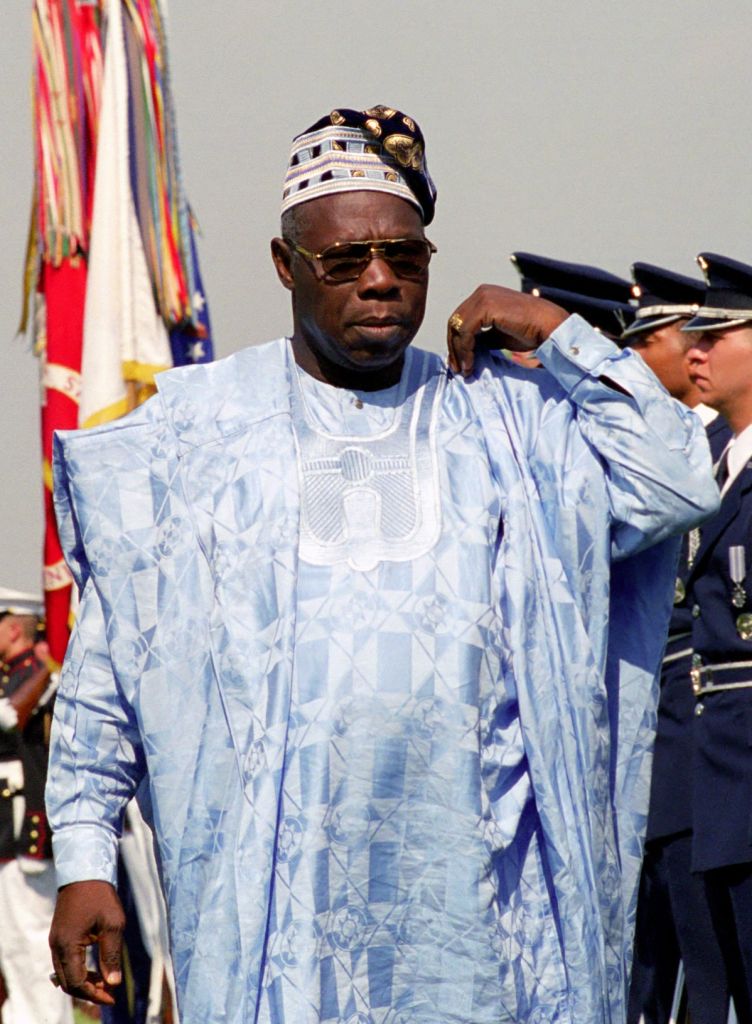
After serving as the military ruler of the State from 1976 to 1979, Olusegun Obasanjo made a significant political return by running for President through the People’s Democratic Party (PDP).
Then he challenged Olu Falaye and defeated him in the elections. Nigeria’s transition to civilian governance began with his election to the position of President in 1999. Obasanjo received 62% of the vote, and the day of his election has since been designated as Democracy Day, a national holiday. He is one of the two presidents to have held office twice in Nigeria, ranking 12th on this list of all Nigerian presidents.
Obasanjo spent most of his time traveling to persuade potential investors—particularly those in the USA and UK—that Nigeria was a fair and democratic nation and that the oil business was stable. Finally, in 2003, Nigerians chose Obasanjo to serve a second term in government. He defeated Muhammad Buhari, a former military pioneer, with 61% of the vote. As a result, he saw the first handoff of authority between civilian presidents. He was followed by Alhaji Umaru Musa Yaradua.
Upon leaving government in 2007, he is credited for boosting Nigeria’s foreign reserves from $2 billion in 1999 to $43 billion. During his second term as President, Obasanjo stabilized the democratic system. He established the Independent Corrupt Practices Commission (ICPC), the Economic and Financial Crimes Commission (EFCC), and Pensions Reform.
President Umaru Musa Yar’Adua (2007-2010)
Yar’Adua’s father served as a Minister for Lagos during the First Republic; therefore, he was naturally introduced to an aristocratic Fulani family in Katsina. In 1958, he began attending Rafukka Primary School. He graduated from Barewa College with a Higher School Certificate in 1971.
From 1972 to 1975, he attended Ahmadu Bello University in Zaria and graduated with a B.Sc. Yar’Adua was chosen as the PDP’s presidential candidate for the April 2007 election on the 16 and 17th of December 2006. As a result, Yar’Adua was declared the victor and sworn in as President of Nigeria following the contentious elections of 2007.
While in office, Yar’Adua became ill and could not carry out his presidential duties. During his presidency, he fought pericarditis, an infection of the pericardium. As a result, he was no longer involved in public life; as a result, endangering the country as there was no sitting president to control affairs. On February 24, 2010, Yar’adua was airlifted back to the nation late at night, which led to rumors that he was on life support. He passed away on May 5 at the presidential mansion. He was buried according to Islamic traditions the following day.
The most crucial policy framework for Yar’adua is the 7-Point agenda. He also started the Niger Delta Militants’ Amnesty Program. The first Nigerian President to disclose an asset upon taking office was Mr. Yar’Adua. He enacted electoral changes and pardoned Niger Delta terrorists, but his poor health prevented him from implementing his seven-point plan.
President Goodluck Ebele Azikiwe Jonathan (2010-2015)
Jonathan was born in 1957 to canoe traders in Bayelsa State. He graduated from the University of Port Harcourt with a B.Sc. in Zoology with second-class honors, an M.Sc. in hydrobiology and fisheries biology, and a Ph.D. in zoology.
After Yar’Adua passed away and Jonathan was appointed interim President, his government’s priorities became electoral reform and anti-corruption. However, most of his government’s resources were diverted to the fight against the Boko Haram insurgency. Nevertheless, as his term in office ended, his government succeeded in controlling the insurgency.
Jonathan received accolades for mostly not interfering with the nation’s election outcomes. He was also credited with bringing the nation’s comatose railway industry back to life under his rule. During his tenure, telecommunications, and internet penetration both increased. His government effectively handled the Ebola situation, averting a worsening catastrophe. It made him the first incumbent to lose to an opposition party in a general election after standing in and winning the presidential election of 2011. He was unable to repeat that feat for a second term in 2015.
President Muhammadu Buhari (2015-2023)
Buhari, a former military leader who became a Democrat and ran in the last presidential election, eventually won the presidency in 2015. After being sworn in on May 29, 2015, Buhari became Nigeria’s second president who had previously served in the military.
Before being chosen as the candidate of the APC, an amalgamation of many opposition parties, he had already run for office three times and failed each time.
In addition, despite a drop in oil prices, his administration implemented the National Economic Recovery and Growth Plan (ERGP) to aid in economic recovery, pulling the nation out of its worst recession in 29 years. It also signed an electoral law to ensure that future elections would be conducted with better due process. he also tried to implement his Naira color change plans like he did when he was military Head of State, but with little to no success.
Bola Ahmed Tinubu (2023 – )

He won the contentious 2023 elections, which saw him triumph over rivals Atiku Abubakar of the PDP and Peter Obi of the LP. On May 29, 2023, he will be sworn in and start his four-year term.
